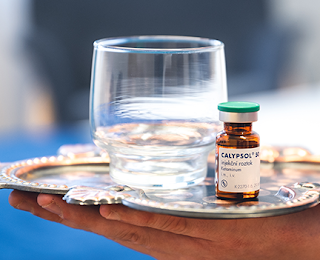Healing from Within: Effective PTSD Anxiety Treatment Options
Post-Traumatic Stress Disorder (PTSD) can cast a long shadow over one's life, affecting mental health and overall well-being. Among the many symptoms, anxiety often reigns supreme, manifesting in various forms and intensities. However, there is hope. With the right treatment approach, individuals can navigate through their PTSD and anxiety, reclaiming control of their lives. Let's explore some effective treatment options for managing PTSD-related anxiety.
Understanding PTSD and Anxiety:
PTSD is a mental health condition triggered by experiencing or witnessing a traumatic event, leading to symptoms like intrusive thoughts, flashbacks, and hyper vigilance. Anxiety is an everyday companion of PTSD, exacerbating symptoms and contributing to heightened stress levels.
Treatment Options for PTSD-Related Anxiety:
Therapy: Cognitive-behavioral therapy (CBT) is a widely recognized and effective PTSD anxiety treatment. Through CBT, individuals learn to identify and challenge negative thought patterns, develop coping mechanisms, and gradually confront trauma-related triggers in a safe and supportive environment.
Medication: In some cases, medication may be prescribed to manage symptoms of PTSD and anxiety. Antidepressants and anti-anxiety medications can help alleviate feelings of fear, worry, and panic, providing relief for individuals struggling with PTSD-related anxiety.
Exposure Therapy: Exposure therapy is a specialized form of therapy commonly used to treat PTSD-related anxiety. By gradually exposing individuals to trauma-related triggers in a controlled setting, exposure therapy helps desensitize emotional responses and reduce the intensity of anxiety symptoms over time.
Mindfulness and Relaxation Techniques: Incorporating mindfulness and relaxation techniques into daily life can help individuals manage symptoms of PTSD-related anxiety. Practices such as deep breathing exercises, meditation, and progressive muscle relaxation promote a sense of calm and reduce stress levels.
Support Groups: Joining a support group for individuals with PTSD can provide valuable emotional support, validation, and camaraderie. Connecting with others who have shared experiences can foster a sense of belonging and reduce feelings of isolation, empowering individuals to navigate their journey toward healing.
Seeking Help:
If you or someone you know is struggling with PTSD-related anxiety, it's essential to seek help from qualified mental health professionals. With the proper treatment approach and support system in place, individuals can effectively manage symptoms, reclaim their lives, and embark on a path toward healing and recovery.
In Conclusion:
PTSD-related anxiety can be debilitating, but it is not insurmountable. With a combination of therapy, medication, and self-care strategies, individuals can effectively manage symptoms and regain control of their lives. Remember, healing is possible, and you are not alone on your journey towards recovery from PTSD-related anxiety.




Comments
Post a Comment